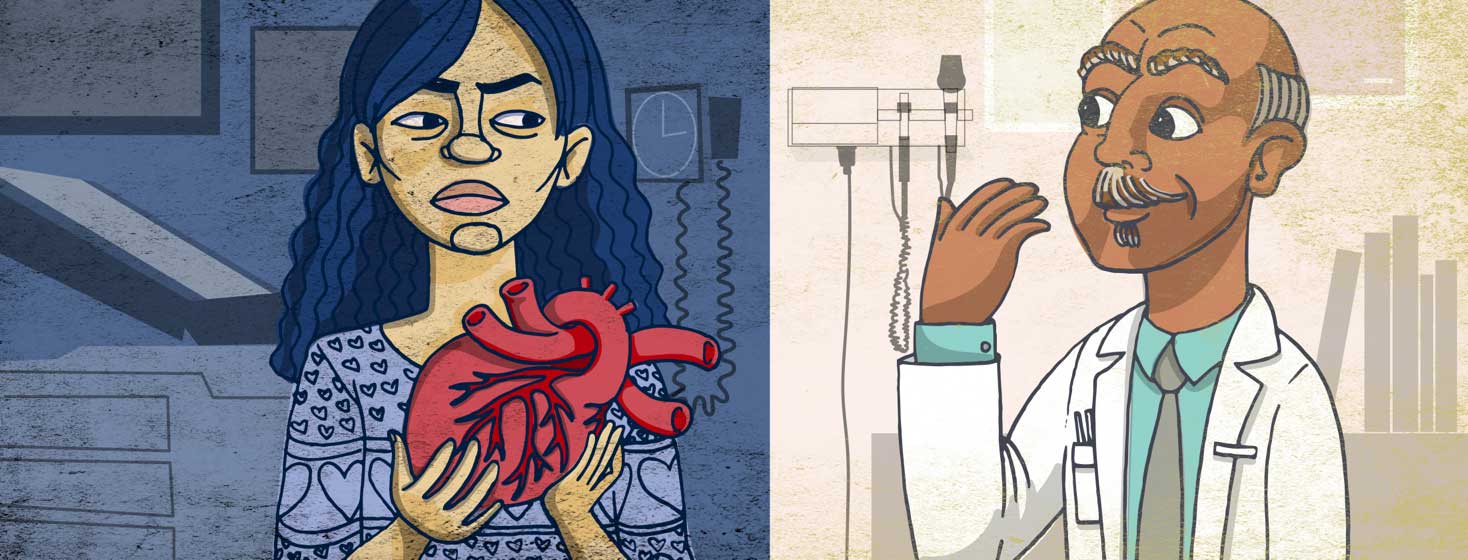Look at the Positive Side of Your Diagnosis
There is a family history of heart disease in my family. My mom and all of her siblings were diagnosed with hypertension. There is also a family history of heart attacks and strokes, so it makes sense my mom was worried when she was referred to a cardiologist.
She was worried because her doctor said she had calcium deposits in her arteries - she worried until she talked to me. After I spoke with her, she said, “You always have a way of making me feel better. Now I’m not worried at all.”
That is a good thing
Well, I said nothing different than what I would say to any of my patients. I said being referred to a cardiologist is a good thing. They are the heart experts. With our family history, you are in good hands with a cardiologist.
Your cardiologist will order some tests. Based on the test results your doctor will come to some conclusions. It may well be that you are fine and he or she will just monitor you just to be on the safe side.
That is a good thing.
If a diagnosis is made, that is a good thing too. It’s a good thing because if something is wrong, you want to get a diagnosis. You want a diagnosis because that begins the journey of getting the best treatment. This is how you live long and live well despite a history of heart disease.
A proper diagnosis is a good thing.
Modern treatment
If you have whatever condition, chances are there is a treatment for it. The treatment may be medicine. The treatment may be an outpatient procedure. The treatment may be surgery. Modern treatment for diseases is so awesome. Sure, we would rather not have a diagnosis. We would rather not have to treat it. But thanks to researchers, scientists, and engineers, today there are a plethora of medical options for various heart diseases.
Medicine
So much is available here. There’s medicine to lower your blood pressure, and medicine to make your heart a stronger pump. If you have a funky heart rhythm, medicine can help control or even fix it.
Stents
A blocked artery can decrease the flow of oxygen to your heart and can cause chest pain or even a heart attack. Cardiac catheterization can help diagnose if you have this and a stent can be inserted to keep your artery open.1-2
Left Ventricular Assist Devices (LVAD)
I just learned about these recently. They are devices that connect to your left ventricle and “assist” your left ventricle in pumping oxygenated blood through your body. They can improve your ejection fraction and can be used to treat heart failure.3
Heart Valve Replacement
Various tests can determine if you have heart valve disease. which can affect the flow of blood through your heart. It can also lead to other diseases such as heart failure. Sometimes the damage is mild and you are simplify monitored by a cardiologist. Although, if severe enough, surgery can be done to repair or replace the valve.4
Progress is being made
Mom says that many of her siblings died of heart disease. This is not surprising, as heart disease is the number one cause of death in the United States. The good news for us is that researchers are well aware of this fact and they are doing a ton of work in this area. They are learning new information and they are even developing new medicines and treatment options, like the LVAD.
The reason we see doctors is to monitor our health. Sure, we like to get a clean bill of health. Still, things happen. When they do, we want to know about it. If your doctor refers you to a cardiologist, consider that a positive thing. They can help you live well and live long despite whatever heart disease you are diagnosed with.

Join the conversation